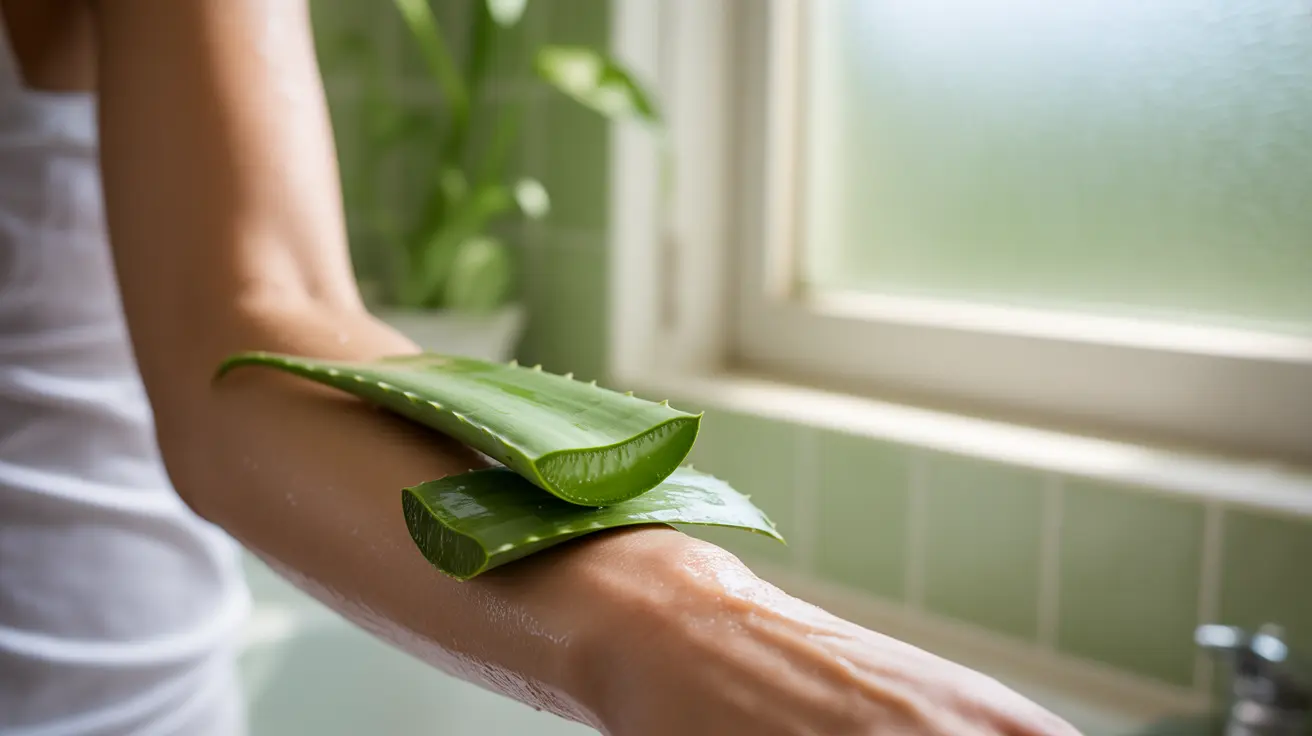Living with rosacea can be challenging, but natural remedies offer promising solutions for managing this chronic skin condition. While there's no cure for rosacea, various natural approaches can help reduce inflammation, soothe redness, and prevent flare-ups without harsh chemicals that might irritate sensitive skin.
Understanding how to effectively use natural remedies for rosacea, along with making strategic lifestyle changes, can make a significant difference in managing symptoms and maintaining healthy skin. Let's explore evidence-based natural treatments and practical approaches to help you take control of your rosacea.
Understanding Natural Anti-Inflammatory Solutions
Several natural ingredients have shown promise in reducing rosacea-related inflammation and redness. These gentle alternatives work by calming irritated skin and supporting its natural healing processes.
Aloe Vera Benefits for Rosacea
Aloe vera stands out as a particularly effective natural remedy for rosacea due to its anti-inflammatory and cooling properties. This succulent plant contains compounds that can help reduce redness and irritation while providing essential moisture to the skin.
Green Tea Applications
Green tea's powerful antioxidant properties make it an excellent natural treatment option. When applied topically or consumed as a beverage, green tea can help reduce inflammation and protect skin from environmental damage.
Dietary Approaches for Rosacea Management
What you eat can significantly impact your rosacea symptoms. Incorporating anti-inflammatory foods while avoiding common triggers can help maintain clearer skin.
Beneficial Foods
Focus on consuming:
- Omega-3 rich foods (fatty fish, chia seeds)
- Leafy green vegetables
- Probiotic-rich foods
- Foods high in zinc
- Anti-inflammatory herbs and spices
Foods to Avoid
Consider limiting:
- Spicy foods
- Hot beverages
- Alcohol
- Histamine-rich foods
- Dairy products (for some individuals)
Essential Oils and Herbal Solutions
When using essential oils for rosacea, proper dilution and careful application are crucial. Always perform a patch test and consult with a healthcare provider before starting any new treatment.
Safe Essential Oil Options
Consider these gentle essential oils:
- Chamomile oil
- Lavender oil
- Tea tree oil (highly diluted)
- Rose oil
Lifestyle Modifications for Symptom Management
Implementing certain lifestyle changes can significantly reduce rosacea flare-ups and improve overall skin health.
Daily Skin Care Practices
Establish a gentle skincare routine that includes:
- Using lukewarm water for cleansing
- Choosing fragrance-free products
- Applying natural sunscreen daily
- Avoiding harsh exfoliants
- Practicing gentle cleansing techniques
Frequently Asked Questions
What are the most effective natural remedies to reduce redness and inflammation caused by rosacea? The most effective natural remedies include aloe vera gel, green tea compresses, chamomile preparations, and honey masks. These ingredients provide anti-inflammatory benefits while being gentle on sensitive skin.
How can aloe vera and green tea help manage rosacea symptoms on sensitive skin? Aloe vera provides cooling and anti-inflammatory properties that help reduce redness and irritation. Green tea contains polyphenols that fight inflammation and protect skin from environmental damage. Both can be applied topically or consumed internally for maximum benefits.
Are there any dietary or lifestyle changes that can help prevent rosacea flare-ups? Yes, avoiding trigger foods, maintaining a consistent skincare routine, protecting skin from sun exposure, and managing stress can help prevent flare-ups. Adding anti-inflammatory foods to your diet and staying hydrated are also beneficial.
What precautions should I take when using essential oils or herbal treatments for rosacea? Always dilute essential oils properly with a carrier oil, perform patch tests before full application, and start with minimal amounts. Avoid using essential oils directly on inflamed skin, and discontinue use if irritation occurs.
Can natural remedies for rosacea interact with prescription medications or cause skin irritation? Yes, some natural remedies can interact with prescription medications or cause skin sensitivity. Always consult with your healthcare provider before starting any new treatment regimen, especially if you're using prescription medications for rosacea.




